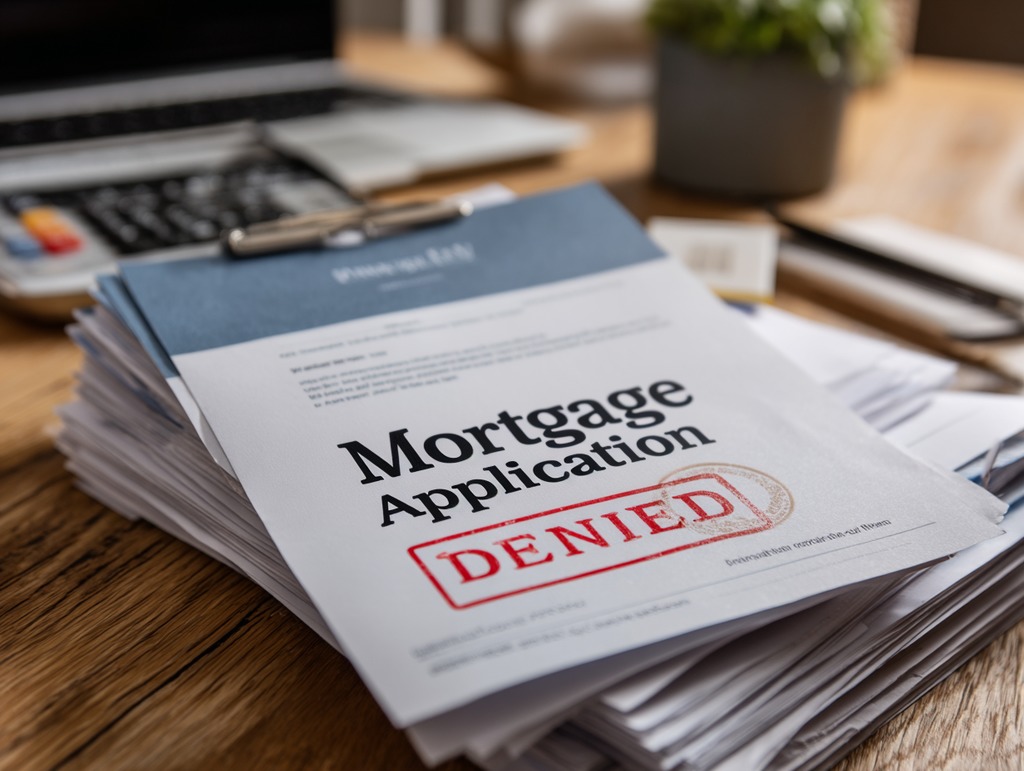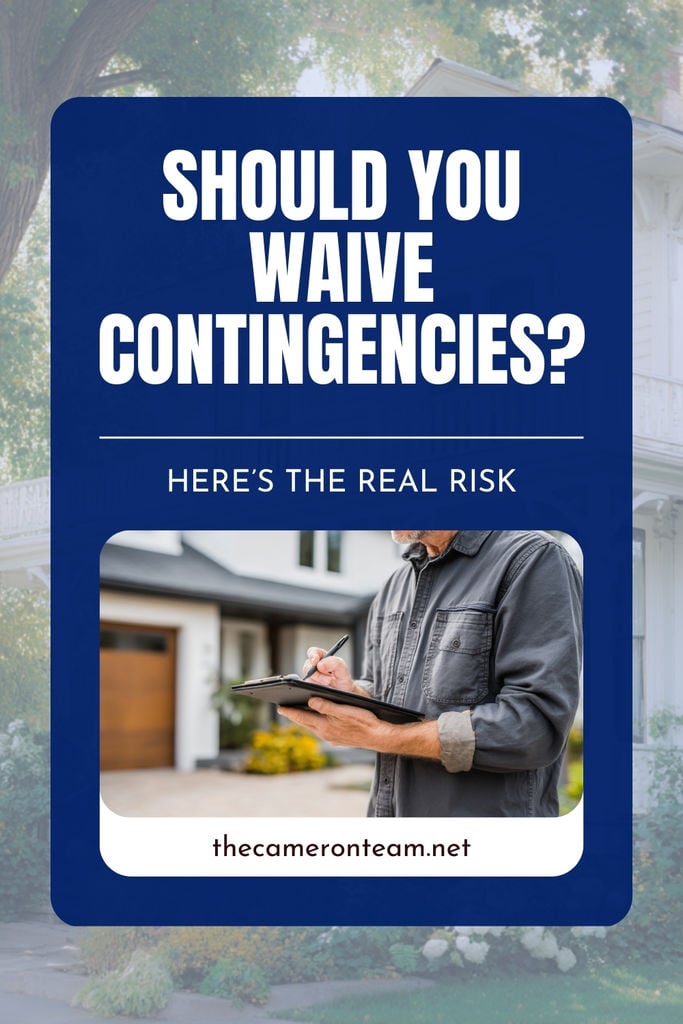In today’s fast-paced housing market, the phrase “waiving contingencies” has become almost as common as “multiple offers” and “bidding wars.” You may have even heard stories of buyers skipping inspections and appraisals just to get their foot in the door—sometimes paying tens of thousands over asking price.
But while dropping contingencies can make your offer more attractive to a seller, it comes with real risks—some of which could cost you far more than you bargained for.
So, should you waive contingencies? Let’s break down what they are, what you’re risking, and when it might be smart—or foolish—to give them up.
What Are Contingencies in a Real Estate Contract?
A contingency is a clause in your real estate purchase agreement that allows you to back out of the deal without losing your earnest money deposit, if certain conditions aren’t met. These clauses are there to protect you.
The three most common contingencies are:
-
Inspection Contingency
-
Appraisal Contingency
-
Financing Contingency
Each serves a different purpose, but all are designed to ensure that you know what you’re getting into, can afford the home, and aren’t overpaying for a property that may have issues.
Let’s look at each one in more detail.
1. Inspection Contingency: Know What You’re Buying
The home inspection contingency gives you the right to have the property professionally inspected within a specified time period. If major problems are uncovered—like foundation cracks, mold, old wiring, or roof issues—you can usually renegotiate the price, ask the seller to make repairs, or walk away with your earnest money intact.
Waiving this contingency means:
-
You accept the home “as is” with no safety net.
-
If a $20,000 plumbing issue is uncovered post-purchase, it’s your responsibility.
-
You may not even have the option to do a professional inspection, depending on how aggressively your offer is structured.
When might buyers consider waiving it?
-
In extremely competitive situations, some buyers do a pre-offer inspection (if the seller allows it), giving them enough insight to feel confident waiving the contingency.
-
For new construction homes that are still under warranty.
-
If you’re a contractor, builder, or investor who is confident in your ability to assess the property’s condition on your own.
When you shouldn’t waive it:
If you’re a first-time homebuyer, purchasing an older home, or already stretching your budget to the max, this is not the contingency to skip. Surprises after closing can be emotionally and financially devastating.
2. Appraisal Contingency: Are You Paying Too Much?
The appraisal contingency protects you from overpaying for a home that doesn’t meet the bank’s valuation. If the home appraises for less than the purchase price, the lender won’t finance the full loan amount. Without this contingency, you must make up the difference in cash—or risk losing your deposit.
Example:
You offer $500,000, but the home only appraises at $460,000. Your lender will likely only loan you up to 80-90% of that $460,000—not the full $500,000. That $40,000 gap? It’s yours to cover out of pocket.
Waiving this contingency means:
-
You’re still obligated to buy the home—even if it doesn’t appraise for the agreed price.
-
You’ll need to bring more cash to closing, renegotiate with the seller, or risk breaching the contract.
Strategies to soften the risk:
-
Appraisal gap guarantees: Some buyers agree to cover a specific shortfall (e.g., “buyer agrees to pay up to $10,000 over appraised value”).
-
Strong financial position: If you have enough cash reserves to handle an appraisal shortfall, it may be a calculated risk worth taking.
When to think twice:
-
If you’re using low down payment financing (like FHA or VA loans), waiving this could leave you unable to close.
-
If your savings are limited, a low appraisal could derail your purchase entirely.
3. Financing Contingency: What If Your Loan Falls Through?
The financing (or mortgage) contingency protects you in case your mortgage application is denied. This clause gives you the right to walk away and get your earnest money back if your financing doesn’t come through by a certain date.
Waiving this contingency means:
-
You’re legally committed to buying the home—even if your mortgage is denied at the last minute.
-
If your loan is rejected and you can’t close, you may forfeit your deposit and be in breach of contract.
Why would someone waive it?
-
If you’re paying all cash, you don’t need this contingency anyway.
-
If your loan is fully underwritten and approved, some buyers feel comfortable waiving it (though it’s still a risk).
-
If your lender can guarantee closing quickly and you’ve already cleared major hurdles in the loan process.
Proceed with caution if:
-
You’ve had recent job changes, credit issues, or any financial instability.
-
You haven’t locked your interest rate yet and are vulnerable to changing mortgage conditions.
-
You’re relying on gift funds, down payment assistance, or other outside sources to qualify.
So, Should You Waive Contingencies?
It depends on your risk tolerance, your financial situation, the property in question, and the competitiveness of the market.
Here’s a simple breakdown of when it might be okay—and when it’s probably not:
Inspection Contingency
Waive it when: Pre-inspected home, new build, or you’re an experienced buyer.
Don’t waive it when: It’s an older home, you’re a first-time buyer, or the property shows signs of damage.
Appraisal Contingency
Waive it when: You have a large down payment or cash reserves to cover a shortfall.
Don’t waive it when: You’re using a low down payment loan or your finances are tight.
Financing Contingency
Waive it when: You’re paying all cash or have full loan approval.
Don’t waive it when: There’s any uncertainty about job stability, creditworthiness, or down payment funds.
A Word on “Clean Offers”
Sellers love “clean offers”—offers without strings attached. Waiving contingencies can give you an edge in a multiple-offer scenario, but don’t be pressured into taking on risks you can’t afford just to win the bid.
You can still write a strong offer without waiving everything.
Here are a few ideas:
-
Shorten the contingency periods (e.g., 5-day inspection window instead of 10).
-
Include a strong earnest money deposit to show good faith.
- Get pre-underwritten for your mortgage—not just pre-approved.
Your real estate agent can help you navigate all of this and tailor your offer to strike the right balance between aggressive and protected.
The Bottom Line
Waiving contingencies is a high-stakes decision. While it may boost your chances of winning a home in a hot market, it can also leave you exposed to costly surprises, stressful situations, and potential legal trouble.
If you’re considering waiving any contingencies, make sure:
-
You fully understand the financial risks.
-
You’ve reviewed recent comparable sales to gauge appraisal risk.
-
You’ve consulted with your real estate agent and lender for advice.
-
You have a plan (and the cash) to handle any surprises.
Buying a home is a big deal—and protecting yourself through contingencies isn’t about being difficult or untrusting. It’s about being smart.






